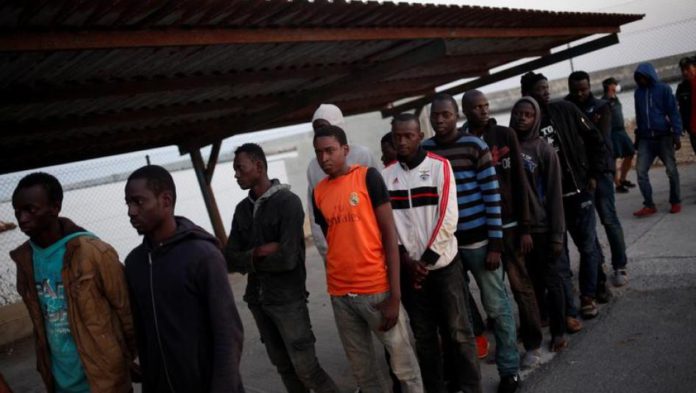
THE Human Rights Watch have warned that migrants arriving in Spain by sea are held in unacceptable conditions in Motril and Almeria.
The organisation reports that migrants are “held for days in dark, dank cells in police stations and almost certainly will then automatically be placed in longer-term immigration detention facilities pending deportation that may never happen.”
Judith Sunderland, Associate Europe and Central Asia Director at Human Rights Watch, said: “Spain is violating migrants’ rights, and there is no evidence that it serves as a deterrent to others.”
The International Organisation for Migration (IOM) has reported that nearly eight thousand people reached Spain between January 1 and July 26, 2017, a sharp increase compared to two and a half thousand people during the same period in 2016.
Human Rights Watch visited police facilities in Motril, Almeria, and Malaga in May and concluded that conditions were “substandard” with “large, poorly lit cells with thin mattresses on the floor, while Malaga police station has an underground jail with no natural light or ventilation.”
They added that adults and children travelling to Spain by boat are detained for up to 72 hours in police facilities for identification and processing with most adults being sent to an immigration detention centre for up to 60 days pending deportation. If they cannot be deported, they are released but have no legal right to remain and are under obligation to leave the country.”
In Almeria, cells are separated from the hallway “by tightly woven steel grills”. Detainees are “locked inside at all times, and taken out only for medical checks, fingerprinting, interviewing and to go to the bathroom because there are none inside the cells.” Although they are outside, they are enclosed spaces in Almeria and Motril, and immigration detainees are not allowed to use them.
The HRW recommends that “As long as the port facilities in Motril and Almeria are used, new measures should be adopted to allow more freedom of movement within the compound, including the use of outside spaces and free access to bathrooms
They concluded that “Spanish authorities should take urgent steps to improve conditions in police port facilities for people arriving by sea and ensure that they have adequate access to information and legal advice.”








